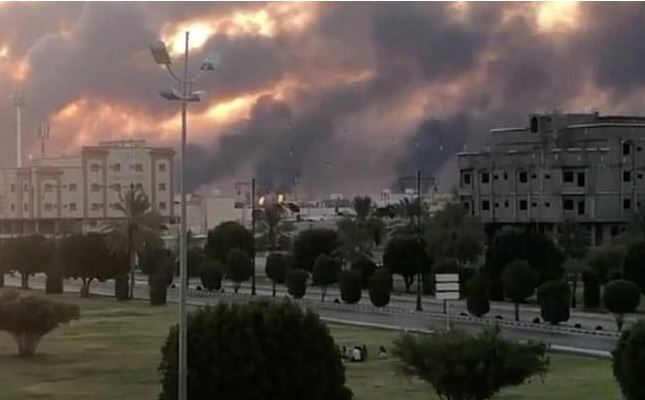
Crude prices witness record surge after drone attack on Saudi oilfield
Crude prices witnessed its biggest intraday jump to over $71 per barrel on Monday (September 16) after a drone attack by Yemen’s Houthi rebels on Saudi Arabia’s largest oil processing plant sparked a major fire on Saturday.

Crude prices witnessed its biggest intraday jump to over $71 per barrel on Monday (September 16) after a drone attack by Yemen’s Houthi rebels on Saudi Arabia’s largest oil processing plant sparked a major fire on Saturday.
The attack has yet again raised geopolitical risks in global energy markets and may reverberate through the wider economy. Whether it would have longer-term impact depends on how long it takes to restore the usual output of 9.8 million barrel per day.
This has been the largest ever supply disruption of crude oil. Also the attack will now attract “terror premium” pricing on most Futures and OTC markets due to which the prices are further expected to rise.
In an unprecedented opening trading session on Monday, London’s Brent futures spiked up almost $12 in just 30 seconds after the open, the highest ever in dollar terms since the financial instrument was launched in 1988.
Prices have since pulled back about half of the initial surge of almost 20%, however, it is likely to face huge volatility until clarity emerges. It must also be noted that such a spike was not seen even during 1991 gulf-war or the 1989 oil embargo.
Impact on India
India’s dependency on crude oil imports has only been increasing over the past few years. According to a data from the Economic Survey, the dependency rose from 77.3% in FY2014 to 83.7% in FY2018.
Also read: 50% of Saudi oil output hit after terror attacks on Aramco facilities
The rise in crude oil price has a big impact on the Indian Current Account Deficit (CAD). CAD is a measure of India’s trade where the value of goods and services imported from the country exceeds the value of goods and services exported. It essentially indicates how much India owes to the world in foreign currency.
A $1 increase in oil price raises India’s import bill by almost $2 billion on an annualised basis. Economists believe that an increase of $10 per barrel of crude prices could raise inflation directly by 10 to 20 basis points.
However, India’s Oil Ministry said it was assured by Saudi Aramco officials that would be no shortage of supplies. “Yesterday (September 15), Saudi Aramco officials informed the Indian refiners that there would be no shortage of supplies to them. Ministry of Petroleum and Natural Gas is closely monitoring the situation in consultation with Indian refiners and Saudi Aramco,” the ministry said.


